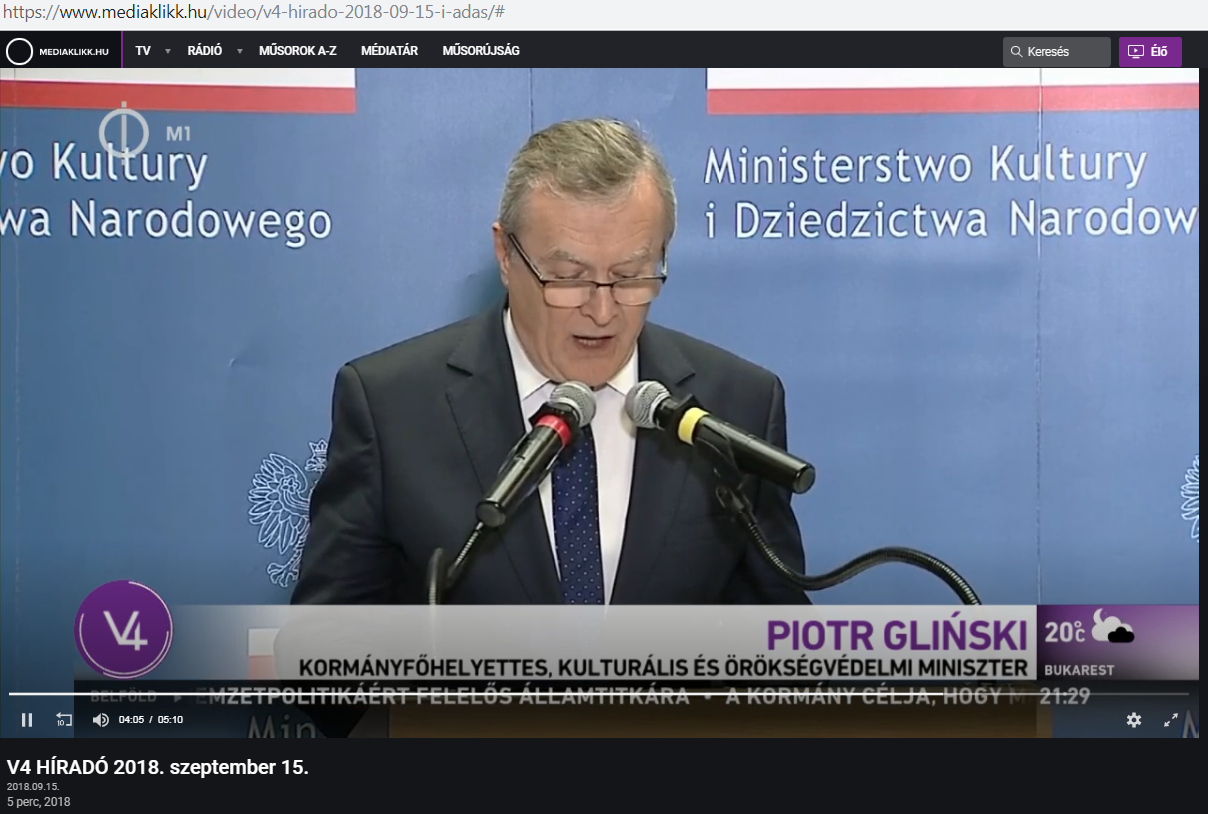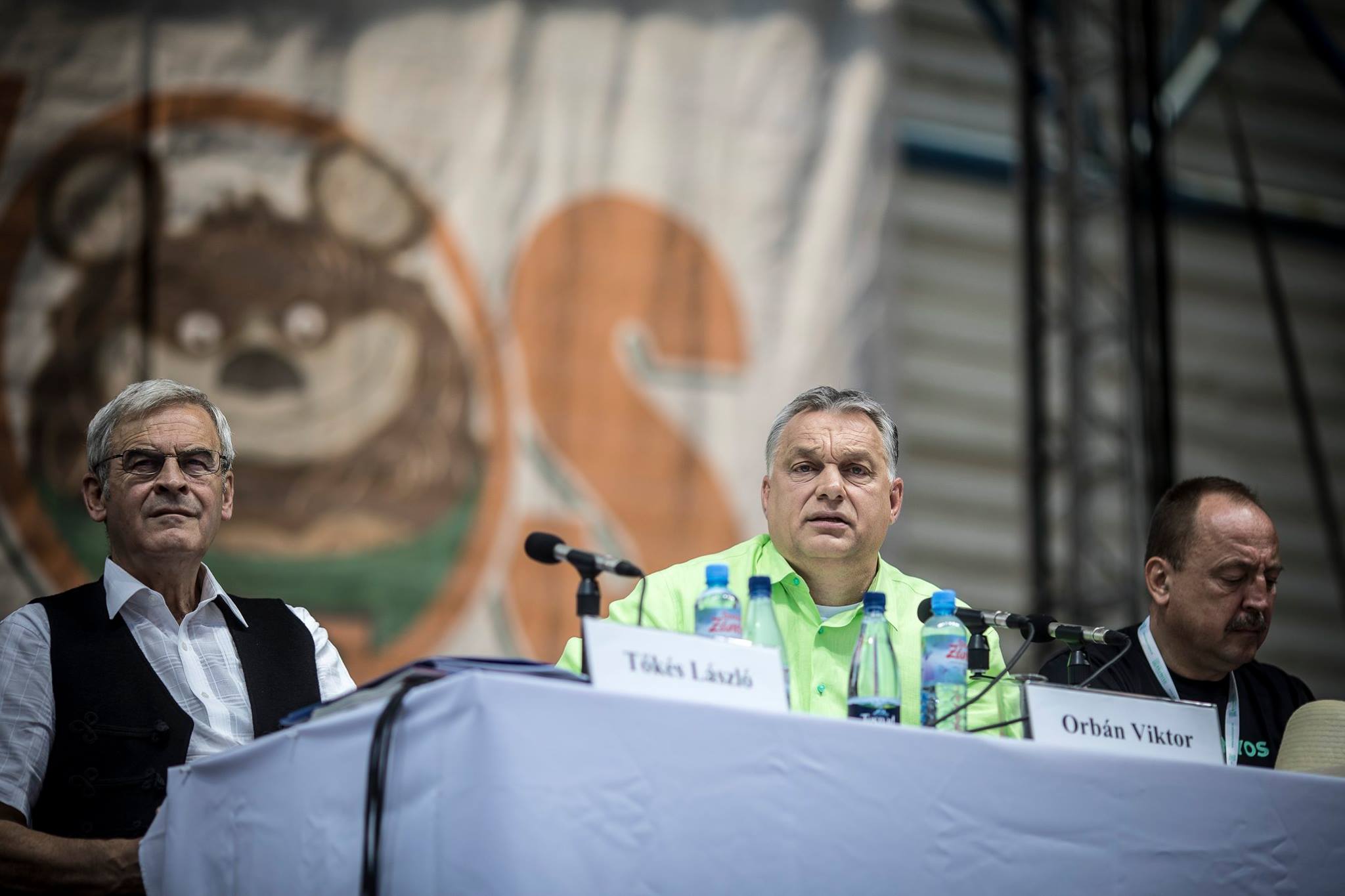By Nicolas de Lamberterie.
Czech Prime Minister Andrej Babiš supports Orbán and severely disavowed his MEPs – an illustration of the youth of the Visegrád Group 2.0
Czechia – The adoption of the Sargentini report against Hungary (challenged by the Hungarian government because of the method of calculating the required 2/3 majority) has caused political waves throughout the week in several political parties in Europe. One can think about the Republicans in France, of whom only 3 of the 20 MEPs voted against the Sargentini report, which the political competitors of LR on the right (Nicolas Dupont-Aignan, and the National Rally) use as argument for the start of the campaign for next year’s European elections.
But the fracture line has actually been seen all over Europe, and not only among the EPP elected representatives. This is particularly the case in the Czech Republic.
Babiš settles his accounts
Shortly after the adoption of the vote, the analysis proposed by the Visegrád Post of the behavior of deputies according to their political group, their country or the orientation of their government, showed that a certain number of elected representatives whose parties are often identified as Viktor Orbán’s allies (because of concordant positions on the migration topic in particular) did not side with the Hungarian Prime Minister.
Among the surprising defections, those of the Czech MEPs of ANO 2011, party of the Prime Minister Andrej Babiš, a billionaire businessman that could be described as liberal-populist. His MEPs, however, sit in the ALDE group chaired by Guy Verhofstadt, opponent of Viktor Orbán and supporter of liberal-libertarian Europe and the open borders policies.
Due to the hostile position on immigration and quotas, the vote of MEPs from Andrej Babiš’s party was surprising. Quickly, comments rose about this vote in Czech Republic, especially since out of a total of 21 Czech MEPs there were still 10 votes against the Sargentini Report (including those of the Communist Party’s MEPs) for 1 abstention, 1 absent during the vote, and 9 votes in favor.
In 2014, the ANO 2011 won 4 MEPs: Pavel Telička (also Vice-President of the European Parliament), Petr Ježek, Dita Charanzová and Martina Dlabajová. In 2018, if they still sit in the ALDE group, two of them left the party of Andrej Babiš: Pavel Telička and Petr Ježek.
Prime Minister Andrej Babiš spoke quickly to reaffirm his support for Viktor Orbán. Prauding Orbán’s action for its action against illegal immigration and respect for the rules (defense of the Union’s external borders): “We are allies and the V4 is working”.
He has clearly disassociated himself from the vote of the ANO MEPs, stating that they would no longer be MEPs next year, regretting their vote but stating that their vote is binding only on them.
Among the other MEPs of Czech Republic who voted for the Sargentini report is Miroslav Poche of the Czech Social Democratic Party (ČSSD). ČSSD is the minority coalition partner of the ANO. Miroslav Poche was expected to hold the post of Minister of Foreign Affairs in the Babiš government: “Mr Poche will not be minister, it is a futile debate” commented Babiš.
A demonstration that the Visegrád Group 2.0 is still young
As a reminder, the Visegrád Group created in 1991 had achieved in 2004 all of its initial objectives with the integration of its members (Hungary, Slovakia, Czech Republic, Poland) into NATO and the European Union. Its usefulness and activity was reduced, especially as tensions persisted within it (in particular between Hungary and Slovakia on the question of the Hungarian minority in Slovakia, with occasional escalations often created artificially by political strategies).
It was only in 2015 that the Visegrád Group returned to the forefront with the migration crisis and the European Union’s desire to introduce a system of mandatory relocation quotas in all countries of the European Union.
This sudden awareness of common interests between the countries of Central Europe has reactivated a Visegrád Group more or less forgotten and neglected, and which knows a mutation in order to become a kind of union defending the interests of these countries. economically exploited within the European Union (first and foremost by Germany).
Beyond the sensitive migratory issue – which is in fact only relative since almost all of the migrants are not keen to settle in low-wage Central European countries – the Visegrád Group has also mobilized itself on the issue of the quality of industrial products distributed in their countries (often of lower quality and at least of equal prices).
To get back to the Czech situation mentioned above, we must remember that the last European election was held in May 2014, before the migration crisis of 2015 and the reactivation of Visegrád.
MEPs from these countries were therefore elected before 2015, which may explain why a number of them act outside the political directives of their parties on the desire for political solidarity between the heads of government of the V4 countries, or that their political loyalty goes more to the parliamentary group in which they sit than to the national directives.
The European election of 2019 could therefore be a moment for matching the composition of party delegations to the European Parliament and the will of the national political parties that nominate them to sit in Brussels. In other cases, it will also be the time when the masks will definitely fall.





